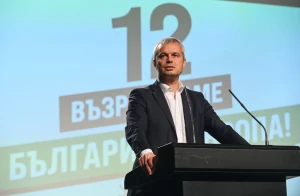
How Russians will try to play victim
The wave of people who are outraged that we do not consider them victims of the regime will be the next wave of Russians that we will have to fight off after Putin
This is a new massive trend of pseudo-liberal-minded Russian emigrants or internal "empathizers". Having pushed their "sympathies" to Ukraine and the world for a year and not received any meaningful acceptance and understanding of this position, Russians are massively disappointed in Ukrainians and write posts like "I supported them so much, but now I won't, because it's their own fault - they hate me."
Their widespread desire to hide behind the status of a victim is easily explained: on the one hand, it is a reflection and a way to explain to their conscience their place among the collective crime, and on the other hand, it is a way to find a lawyer in the form of a convenient victim's indulgence, because it is wrong to criticize the victim because it is victim-blaming.
But their sympathy and compassion in the vast majority of cases is not really compassion, but rather simple flattery. Which, by the way, some psychologists consider to be one of the basic reactions to a threat, along with the famous "fight" and "flight" responses. It is flattery that lies at the heart of Stockholm syndrome. And, surprisingly, there is very little flattery among the occupied Ukrainians, although it would be an absolute norm in their situation, but among the "fleeing" Russians it is widespread.
“Their sympathy and compassion in the vast majority of cases is not really compassion, but rather simple flattery. Which, by the way, some psychologists consider to be one of the basic reactions to a threat, along with the famous "fight" and "flight" responses. It is flattery that lies at the heart of Stockholm syndrome.”
But flattery is manipulation. If a dog wagging its tail and looking into the eyes of a stranger doesn't get food, it quickly becomes indifferent to him and switches to another object. It's nothing personal, it's just business.
By the way, flattery is often at the heart of collaborationist regimes - they are driven by a desire to save themselves and their country and to gain some situational benefits. The French, for example, are still not very clear in their historical assessment of Marshal Petain. Was he a clear collaborator and traitor, or a military man who saved France from significant destruction by the Germans and led his country through the difficult Second World War with relative ease.
The Russians could have a theoretical chance to become a normal country, but to do so, they would have to accomplish an unrealistic task - to drag themselves out of the swamp by their hair. From the point of view of physics and the principles of leverage, this is impossible. To do this, they will have to not only condemn Putinism, but also abandon the Soviet past. To decommunize, finally bury Lenin, remove the mausoleum and stars from the Kremlin, demolish monuments, reconsider their attitude to World War II, stop celebrating Victory Day on May 9, and realize that they too suffered from this state formation no less than other republics. While the USSR was a prison for other nations, and it was relatively easy for them to realize this fact and get out, Russians were both jailers and prisoners. Their intelligentsia was no less mercilessly crushed, and the memory of the normal was erased.
“The Russians could have a theoretical chance to become a normal country, but to do so, they would have to accomplish an unrealistic task - to drag themselves out of the swamp by their hair. From the point of view of physics and the principles of leverage, this is impossible.”
Only if the European countries of the socialist camp were in the communist fog, Ukraine and other Soviet republics were in its gloom, Russia itself was and is in the heart of darkness. Just like Conrad's. It is extremely difficult to get out of there, and it is not known where to get light to illuminate it.
Because their nuclear weapons, in addition to protecting and intimidating the world, have also become a trap for them. Occupation and foreign aid to Russia, like, for example, to Germany, is impossible after World War II. They have built walls that they cannot climb over themselves. Russia's political and social borders act like a membrane in expensive tourist clothes - they can easily lead you outside, but do not let you in.
That is why the new postwar benchmark for demarcating the "Russian World" will not be the question "whose Crimea is it?" (I hope it will finally be resolved successfully in favor of Ukraine for both countries), but something like "what is May 9?"
About the author: Volodymyr Hevko, marketer, blogger
The editors do not always share the opinions expressed by the authors of the blogs.
- News














































